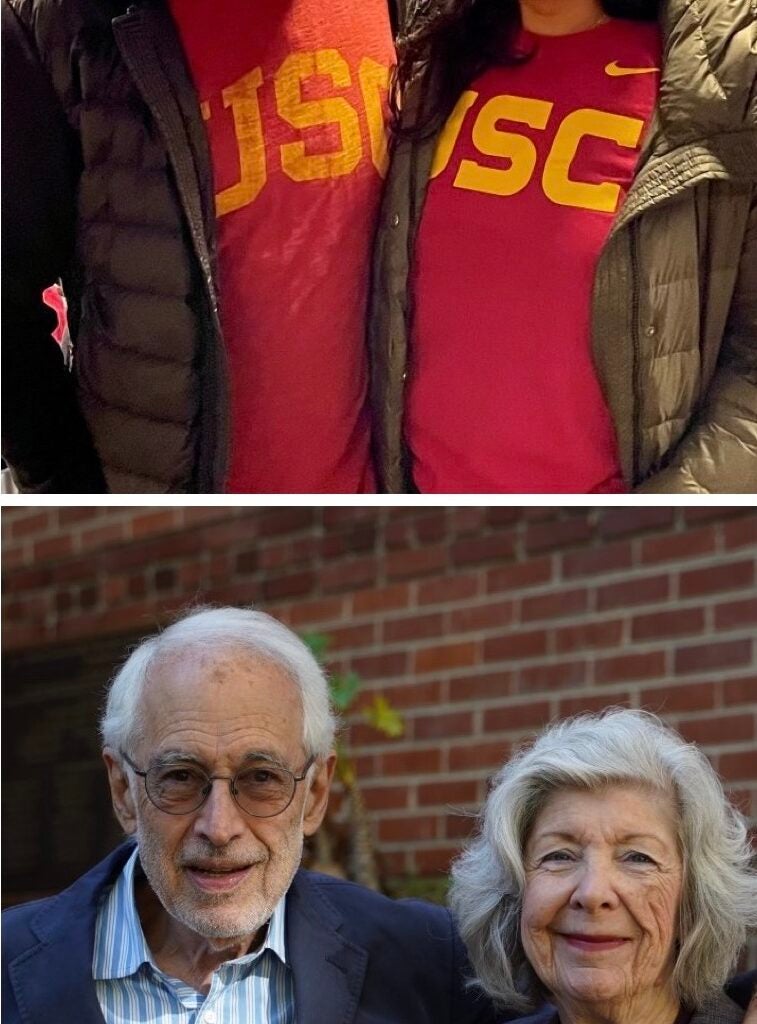
Bridge Undergraduate Science
The Power of Research
Graduate students and faculty often get priority access to lab equipment and other research resources, so what’s an undergrad who’s interested in research to do?
Students at USC have several options, including an innovative program with a creepy-crawly name: BUGS.
The BUGS (Bridge Undergraduate Science) Summer Research Program at the USC Dornsife College of Letters, Arts and Sciences pairs undergrads with faculty members and graduate students or postdoctoral mentors to perform hands-on research in USC labs. It’s an important opportunity for students aiming for careers in science, technology, engineering and mathematics, or STEM, fields.
STEM-based careers have grown by nearly 80% since 1990 and are set to grow another 11% by 2030. STEM education prepares students to be curious critical thinkers and problem-solvers, traits that give them an advantage in applying for jobs or graduate school as well as an understanding of the culture of research and what a career in science looks like.
Growing BUGS
Founded in 2015 with just four faculty members and 16 students, BUGS in 2022 grew to its highest levels of participation to date, with 54 USC faculty mentors from seven separate academic units working alongside 46 undergrads. In addition, 51 high school students participated in BUGS Jr., the BUGS counterpart program for high school students.
Providing students with 30 hours a week of laboratory research, BUGS also requires participants meet weekly for peer community-building activities including journal clubs, career symposia and mixers where researchers in fields such as chemistry, physics and even scientific writing share their expertise with students.
The program culminates with each student presenting their research in a symposium. The most recent cohort presented topics that included mapping the lymphatic uterus, motor control in infants with high risk of cerebral palsy, and nerve regeneration in rat wound sites.
Since its founding, BUGS has helped shape the educational and professional trajectories of 321 students. Many of the undergraduates have matriculated into medical and graduate programs, including three who earned honors as Fulbright Scholars.
Crucial Support
Many BUGS participants are financially supported by USC Fellowships, including through SURF (the Summer Undergraduate Research Fund) and fellowships administered by the USC Michelson Center for Convergent Bioscience Bridge Institute, which oversees the program. Stipends allow BUGS participants to focus on their research as they seek to improve the human condition. For some, this means being able to afford on- or off-campus housing during the summer or not having to split time and energy on a summer job.
For student participants, the experience can be life-changing.
Fifi Pan, a sophomore majoring in neuroscience and disruptive innovation, credits the financial support with allowing her to pursue her dream of using computational neuroscience to make a positive impact on the world.
“The open conversations I have had with incredible professors, mentors and peers through BUGS have been transformative and fueled me to pursue my dreams,” she said.
Scholarship support allowed Pan to work with faculty and PhD mentors to develop a computational model for an immunosuppressive cell that is born from, but also suppresses, our immune system.
“Understanding this type of cell from computational, biological and pharmaceutical perspectives will yield giant steps towards immunotherapeutic interventions for cancer,” Pan said, “and BUGS allowed me to contribute to this understanding.”
“I am forever grateful for the support,” added junior Catie He, a chemistry major who received research stipends. “The BUGS experience not only deepened my research and critical thinking skills, but also allowed me to contribute to the scientific world.”
Donors, likewise, believe that science education is an important pathway to changing the world.
Neeti Dang ’00 and her husband Sandeep, a Dornsife alumnus (BS ’97; MD ’01), hadn’t been on campus for years when they decided to take a tour to reacquaint themselves. After leaving the Michelson Center, where BUGS is housed, Neeti remembers thinking it was “mind-boggling — the fact that so much effort and thought went into building an intentional space for research.”
Sandeep, who participated in undergraduate research as a premed student at USC Dornsife, had spent long hours in labs that were cold, sterile and lonely. The USC Michelson Center provides a striking counter to that — a bright, dynamic environment that encourages collaboration between researchers at all levels, including professors, graduate students and undergrads. The Dangs knew they wanted to support this collaborative nature by contributing to BUGS.
“Society constantly needs new scientists who do innovative research that helps propel forward health care and other fields,” Neeti said. “BUGS shows students how to get there.”
Much like the Dangs, Fran Peskoff ’64 and her husband Art reconnected with USC during a campus tour after a hiatus from the university. After graduating with a degree in math from USC Dornsife, Fran went on to have a career in computer programming and software development, while her husband Art was a physicist and biophysical researcher.
Because they knew the power of research to shape a young scientist’s career trajectory, the Peskoffs were looking to support an undergraduate science program. “Students should start doing scientific research at the undergraduate level so they can begin to determine what areas of science they might be interested in in the future,” said Fran. “We want these students to become proficient in scientific methods so they can hit the ground running when they go to work in their chosen fields.”
Scientific research, at its core, is about improving lives. According to Fran Peskoff: “Supporting education is the best way to make the world a better place.”
By providing students the opportunity to learn from experts in their desired fields, donors are helping BUGS do just that.
Connect With Us
USC Dornsife Office of Advancement
1150 South Olive Street, Suite 2400
Los Angeles, CA 90015
Mail Checks to:
USC Advancement Gift Services
1150 South Olive Street, Suite 2500
Los Angeles, California 90015
USC Tax ID: 95-1642394